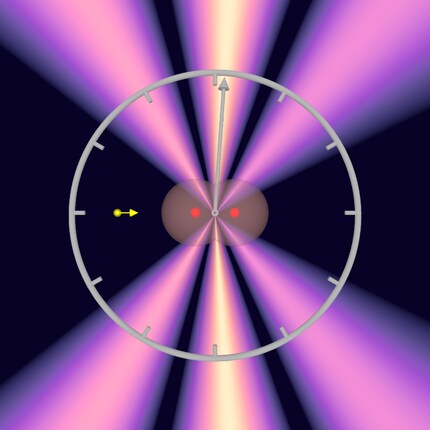Do you still watch live sports?
- Yes, I continue to tune in.32%
- Much less often than before.34%
- No, without fans and atmosphere I'm not interested.34%
The competition has ended.

Small periods of time play a major role in sport. So do fine timepieces. But the world record is held by science.
The "battle against the clock" is part of sport. In the end, time decides winners and losers. The blink of an eye destroys dreams or crowns careers. Although the blink of an eye, which lasts around 0.15 seconds, is an eternity by today's standards. The obsession with time is a diabolical pact that is being pushed further and further. The more drama, the better. I loved being there. I cheered along on the TV, suffered through overtimes, interpreted split times and cheered the end times.
The development is extreme: tenths are nothing anymore, it's all about hundredths and thousandths. The main thing is to separate the winners from the "losers". Even if the human eye can no longer tell the difference. In 1936, skiers' times were measured for the first time at the Olympic Games using two stopwatches at the start and finish line and the time was then calculated. In 2012, special cameras filmed the finish line at 2000 frames per second at the Summer Games in London - which was also needed to determine Nicola Spirig's victory in the triathlon.
The battle for the clock is just as much a part of sport. For example, Sepp Blatter, who mediated between the worlds of time and sport as Director of Public Relations at Longines before his FIFA career in the early 1970s, is fighting for his watch collection. The valuable pieces are allegedly still in the office of his successor Gianni Infantino. But the situation is confusing, there are simply too many. The fact that luxury chronographs are piled up in officials' offices is part of folklore. After all, there's nothing better than giving away time. Especially when it's gold-plated and worth five figures.
But times are changing. Whereas previously every scandal was drowned in a sea of cheers, sport is currently naked. The show is being put on somehow, of course. But emotions are missing and it's becoming increasingly obvious how the business ticks and who is pocketing the money. At the moment, I don't care who wins the Clásico or when the Ski World Cup starts. I read it, but it doesn't touch me anymore and I hardly ever switch on.
Do you still watch live sports?
The competition has ended.
The time for big watches seems to be over, sales figures are plummeting, as are the viewing figures for major sports leagues. Time is to blame - of course. The times we live in. And in which nobody knows exactly what time it is.

The only sports news that has stuck with me in recent weeks is none at all. It's a world record in stopwatch stopping. "In the global race to measure the shortest time span, physicists at Goethe University Frankfurt are now in the lead," I read in the university's press release. Ah?
Somehow I am touched by this scientific race, which I had never heard of before. Just like "zeptoseconds" wasn't part of my vocabulary. I stopped at "nano". From a zeptosecond perspective, nanoseconds are an eternity. One zeptosecond is one trillionth of a billionth of a second, I learn.
It takes about 247 zeptoseconds for a particle of light to pass through a hydrogen molecule. To find this out, it took the X-ray radiation source PETRA III at the Hamburg accelerator centre DESY, the COLTRIMS reaction microscope and the nerdiest expertise. Sven Grundmann, whose doctoral thesis the publication in Science is based on, almost sounds like a coach explaining how he deciphered the opponent's tactics after the game: "Since we knew the spatial orientation of the hydrogen molecule, we were able to calculate very precisely from the interference of the two electron waves when the photon had reached the first and when it had reached the second hydrogen atom."
In case you still haven't understood it, below is the photon finish, or rather the schematic representation of the measurement. I will reproduce the image text exactly as it appears in the press release. Because ... I couldn't say it any better. Pro tip: Think of it in the excited style of a sports reporter. Beni Thurnheer at 180: "The photon in yellow, coming from the left..."

This means that the stopwatch world record has been pulverised. It is a huge leap from a billionth of a millionth to a trillionth of a billionth of a second. Until now, femtoseconds were the measure of all things. In 1999, the Egyptian chemist Ahmed Zewail was awarded the Nobel Prize for measuring the speed at which molecules vibrate. Respect. But Zepto? Poah!
Simple writer and dad of two who likes to be on the move, wading through everyday family life. Juggling several balls, I'll occasionally drop one. It could be a ball, or a remark. Or both.
Interesting facts about products, behind-the-scenes looks at manufacturers and deep-dives on interesting people.
Show all